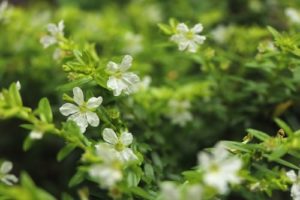Does biodiversity make us happy?
According to research by former students of Simon Langton Girls Grammar School, it does.
With funding from the Wellcome Trust, student scientists from the school in Canterbury, Kent, developed the Well World project to explore how different environments influence humans’ physical and mental well-being. The project has since been piloted in one primary and five secondary schools across England
The young researchers from Simon Langton began by measuring the biodiversity, particularly the number of wildlife species, in various natural areas surrounding their school. They then set their peers off on 15-minute walks in different outdoor areas. They measured participants’ heart rates, blood pressure and anxiety levels before and after walks in various natural settings.
The research project had a huge impact on Lauren Charters who now studies sciences at the University of Oxford.
“At the most fundamental level, the project taught me how human data collection works in practice– and sometimes how awkward it can be. Walking with 12-year-olds outside, trying to keep them calm and silent for 10 minutes, was often quite comic. I also learned that if someone is nervous their blood pressure can skyrocket, and this can throw the data completely off. These experiences have helped me no end at university,” said Lauren.
Taking part in this project has been incredibly rewarding both as a teacher, and also as a biologist.
Sam Goodfellow, a biology teacher at Simon Langton Grammar School for Girls says that Well World has reinvigorated her excitement for science.
“Taking part in this project has been incredibly rewarding both as a teacher, and also as a biologist. It has been wonderful to watch successive sets of sixth formers discover the trials and tribulations of taking part in real research from planning to evaluation and experience the thrill of finding out something new.
I am now able to reference our research in the classroom and pupils can experience the importance and relevance of experimental work on their doorstep. After twenty years in the classroom this experience has reminded me of my love of science, not just my love of teaching it.,” says Sam.

